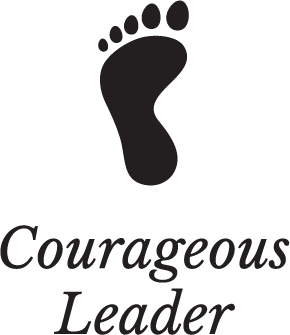Effective leadership is crucial for any organization's success. Exemplary leadership coaching skills can transform good leaders into great ones. This post delves into essential skills every leader should master. Read on to discover how to enhance your leadership abilities.
1. Communication: The Foundation of Leadership
Communication is the cornerstone of effective leadership. Leaders must convey their vision, expectations, and feedback. This skill helps in building trust and rapport with the team. When leaders communicate well, they inspire and motivate their team.
Active Listening
Active listening is a critical part of communication. Leaders should not just speak but also listen. This involves paying full attention, understanding, and responding thoughtfully. It respects team members' ideas and concerns, fostering a collaborative environment.
Non-Verbal Communication
Nonverbal cues, such as body language and facial expressions, play a significant role in communication. Leaders should be aware of their own nonverbal signals and able to read those of their team members. This understanding can prevent miscommunications and build stronger connections.
Feedback and Constructive Criticism
Providing feedback is essential for growth. Leaders should master the art of constructive criticism that encourages improvement without discouraging it. Positive feedback should be given generously to reinforce good behavior and performance.
2. Emotional Intelligence: Connecting with Your Team
Emotional intelligence (EI) is the ability to understand and manage your emotions and those of others. It is a vital leadership coaching skill that helps leaders navigate social complexities and make better decisions.
Self-Awareness
Self-awareness involves recognizing your emotions and their impact on your behavior and decisions. Self-aware leaders can manage their reactions and maintain control in stressful situations.
Self-Regulation
Self-regulation is about managing your emotions and impulses. Leaders who regulate their emotions are less likely to make hasty decisions and can handle pressure more effectively.
Empathy
Empathy is the ability to understand and share the feelings of others. Empathetic leaders can build strong relationships and create a supportive work environment. They can also better address the needs and concerns of their team members.
Social Skills
Social skills include managing relationships, influencing others, and working well in teams. Leaders with strong social skills can resolve conflicts, build networks, and foster a positive team culture.
3. Decision-Making: The Art of Making Informed Choices
Decision-making is a crucial part of leadership. Leaders are often required to make quick, impactful decisions, and mastering this skill can significantly influence an organization's success.
Critical Thinking
Critical thinking involves analyzing information objectively and making reasoned judgments. Leaders with strong critical thinking skills can evaluate situations, identify potential problems, and develop practical solutions.
Problem-Solving
Problem-solving is about finding solutions to complex issues. Leaders should be able to identify the root cause of a problem and develop a strategic plan to address it. This skill requires creativity, analytical thinking, and perseverance.
Risk Management
Risk management involves identifying, assessing, and mitigating risks. Leaders must be able to weigh a decision's potential benefits and drawbacks. This skill helps make informed choices that align with the organization's goals and values.
4. Adaptability: Thriving in Change
Leaders must be able to adapt to change. The business landscape constantly evolves, and leaders must be flexible to navigate these changes effectively.
Open-Mindedness
Open-minded leaders are willing to consider new ideas and approaches. They encourage innovation and are not afraid to challenge the status quo. This mindset fosters a culture of continuous improvement and growth.
Resilience
Resilience is the ability to bounce back from setbacks. Resilient leaders can maintain their focus and motivation despite challenges. They inspire their team to stay positive and persevere through difficult times.
Flexibility
Flexibility involves adjusting your approach based on the situation. Leaders should be able to shift their strategies and tactics as needed. This skill is crucial for navigating uncertainty and responding to changing circumstances.
5. Delegation: Empowering Your Team
Delegation is the process of assigning tasks and responsibilities to others. It is a crucial leadership coaching skill that enables leaders to focus on high-level strategic goals.
Identifying Strengths
Effective delegation starts with understanding the strengths and weaknesses of your team members. Leaders should assign tasks that align with each person's skills and expertise. This approach maximizes productivity and job satisfaction.
Trusting Your Team
Trust is fundamental to successful delegation. Leaders must have confidence in their team members' abilities and allow them the autonomy to complete their tasks. Micromanaging can undermine trust and hinder performance.
Providing Support
While delegation involves giving responsibility, it also requires providing support. Leaders should offer guidance and resources as needed and be available to answer questions and address concerns.
6. Courageous Leader Program: Elevating Leadership Skills
The Courageous Leader program by Kull Leadership AB offers a comprehensive approach to developing leadership coaching skills. This program focuses on helping leaders make courageous decisions and create lasting impact.
Building Courage
The Courageous Leader program equips leaders with tools to manage inner obstacles and helps them develop the confidence to make bold decisions that drive positive change.
Creating Openness and Trust
The program emphasizes the importance of openness and trust within teams. Leaders learn to foster a culture of transparency and inclusivity, enhancing collaboration and innovation.
Leading with Wisdom
Leaders in the Courageous Leader program gain insights into how their decisions affect their business and the broader community. They learn to balance short-term goals with long-term sustainability, making decisions that benefit the organization and the planet.
Driving Positive Change
Participants in the Courageous Leader program are encouraged to challenge the status quo. They learn to listen actively, reflect on their actions, and lead honestly. This approach helps create a culture of continuous improvement and positive impact.
Conclusion
Mastering leadership coaching skills is essential for any leader who wants to make a significant impact. Focusing on communication, emotional intelligence, decision-making, adaptability, and delegation can enhance leaders' effectiveness and drive their organizations forward.
At Courageous Leader, we are dedicated to helping leaders develop these essential skills. Our program offers the tools and support to become courageous and impactful leaders. Start your journey today and make a difference in your organization and beyond.
Are you ready to elevate your leadership skills? Explore our Courageous Leader program and discover how you can transform your leadership style. Comment below, share this post or contact us to learn more. Together, let's create a culture of courage and positive change.
Read More:
Personal and Professional Growth with Leadership Coaching


